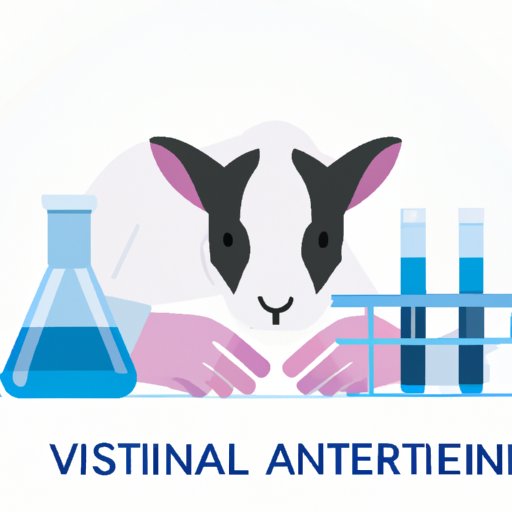Introduction
Animal testing has been a part of scientific research for centuries, but in recent years there has been an increased awareness of the ethical implications of this practice. This article aims to explore how science is getting closer to a world without animal testing, while also examining the pros and cons of using alternative methods.
Exploring Alternatives to Animal Testing: How Science is Moving Away from Cruelty
The use of animals in scientific research has been common since the 19th century, but it has become increasingly controversial in recent years. Animal testing is used in a variety of scientific fields, including pharmaceuticals, cosmetics, and medical research. The practice involves exposing animals to various substances or treatments in order to test their effects.
The impact of animal testing has been detrimental to both human and animal welfare. It has been estimated that more than 100 million animals are used in experiments each year, and many of these animals suffer from pain, stress, and even death. Moreover, animal testing has been criticized for its inefficiency, as results from animal tests often cannot be accurately applied to humans.
In light of these issues, scientists have been searching for more humane solutions. Computer models are one potential alternative to animal testing, as they can simulate the effects of a substance or treatment without using animals. However, there are still some drawbacks to using computer models, such as their limited ability to accurately predict the effects of a substance on humans.
Another promising alternative to animal testing is the use of artificial intelligence (AI). AI technology has advanced significantly in recent years and can now be used to develop highly accurate simulations of human biology. AI-driven simulations can be used to study the effects of various substances on human cells and tissues, which could replace the need for animal testing.

Understanding the Ethical Implications of Animal Testing in Research
Despite the potential of alternatives such as computer models and AI, there are still some ethical considerations when it comes to animal testing. Animal testing is often necessary in order to develop new medical treatments and ensure the safety of drugs and other products. For example, animal testing is used to identify potential side effects of drugs before they are approved for use in humans.
At the same time, animal testing is seen as a violation of animal rights, as it exposes animals to unnecessary suffering and distress. Therefore, it is important to consider the ethical implications of animal testing and find ways to reduce the number of animals used in experiments.
Recent advances in the field of AI have provided a viable alternative to animal testing. AI technology can be used to create simulations of human cells and tissues, which can be used to study the effects of various substances on humans. This eliminates the need for animal testing and reduces the risk of animal suffering.
Conclusion
This article has explored the issue of animal testing and the search for more humane alternatives. Computer models and AI technology offer promising alternatives to animal testing, as they can provide accurate simulations of human biology without the need for animals. However, it is important to understand the ethical implications of animal testing and ensure that any alternatives are not causing unnecessary suffering.
Overall, science is getting closer to a world without animal testing, thanks to the development of more humane alternatives. These alternatives offer the potential to reduce animal suffering while still providing accurate information about the effects of substances and treatments on humans. With continued research and development, a future without animal testing may soon be within reach.
(Note: Is this article not meeting your expectations? Do you have knowledge or insights to share? Unlock new opportunities and expand your reach by joining our authors team. Click Registration to join us and share your expertise with our readers.)
